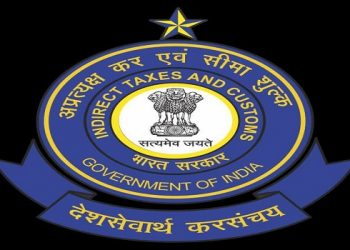The Goods and Services Tax (GST) has revolutionized the Indian tax landscape by unifying indirect taxes under one umbrella. While this has undoubtedly enhanced transparency and efficiency, it has also added a layer of complexity for businesses of all sizes. Two crucial aspects of GST compliance that often leave businesses bewildered are audits/ reconciliation and annual returns. This comprehensive guide aims to demystify these processes, empowering you to navigate them with confidence.
GST Audits: A Necessary Scrutiny
A GST audit is a mandatory exercise for certain categories of taxpayers, involving a thorough examination of their financial records and adherence to GST regulations. The objective is to verify the accuracy of their tax returns, identify discrepancies and potential misstatements, and ensure proper compliance with the GST law.
Who Needs a GST Audit?
The requirement for a GST audit depends on your annual turnover. As of 1st April 2021, the mandatory audit applies to taxpayers whose turnover exceeds ₹5 crores in a financial year across all it’s GST numbers on one PAN. For taxpayers with a turnover between ₹2 crores and ₹5 crores, the audit is optional, but the government may select them for random audits based on specific criteria.
How to prepare for a GST audit:
- Maintain accurate and organized financial records throughout the year.
- Reconcile your books of accounts regularly.
- File all GST returns correctly and on time.
- Keep supporting documents readily available for verification.
- Seek professional assistance from a chartered accountant or GST expert.
What is a GST Annual Return?
A GST annual return is a summarized report that compiles all your GST transactions for a financial year. It provides a consolidated view of your income, expenses, taxes paid and claimed, and other relevant details. The annual return serves as a crucial document for verifying your compliance and assessing your tax liabilities.
Who Needs to File an Annual Return?
Every registered taxpayer under GST, regardless of their turnover, is required to file an annual return in the prescribed format (GSTR-9). The deadline for filing the annual return is 31st December of the subsequent financial year.
What are the key components of GSTR-9?
GSTR-9 comprises various sections that capture details of different aspects of your business, including:
- Summary of outward supplies: This section includes details of all sales made during the year, classified by tax rate and state/union territory.
- Summary of inward supplies: This section lists all purchases made during the year, categorized by tax rate and state/union territory.
- Details of input tax credit (ITC): This section provides a breakdown of the ITC claimed by the taxpayer throughout the year.
- Details of taxes paid: This section summarizes the amount of GST paid under different heads, including tax on outward supplies, late fees, and interest.
- Reconciliation statement: This section reconciles the figures reported in GSTR-9 with the audited financial statements.
Filing GSTR-9 Electronically
- Access the GST portal using your login credentials.
- Navigate to the ‘Returns’ section and select GSTR-9.
- Fill in the required details accurately as per the instructions provided.
- Upload any necessary supporting documents.
- Verify and submit the return electronically.
What are the consequences of non-compliance?
Failure to comply with the GST audit and annual return requirements can lead to various penalties, including:
- Late filing fees
- Interest on outstanding tax liabilities
- Denial of input tax credit
- Monetary penalties based on the nature and extent of non-compliance
The due date for completing the GST audit for FY 2022-23 is 31st December 2023. This applies to all taxpayers who are required to undergo a mandatory audit.
However, it’s important to note that the deadline for filing the GSTR-9 annual return is also 31st December 2023. While the audit is not technically due until this date, it is crucial to complete it beforehand to ensure timely filing of the annual return.
Conclusion:
GST audit and annual return are crucial aspects of ensuring compliance with the GST regime. Understanding their requirements and procedures is essential for all registered taxpayers. By adhering to these formalities, taxpayers can ensure smooth business operations, avoid penalties, and maintain a positive reputation with the authorities.













